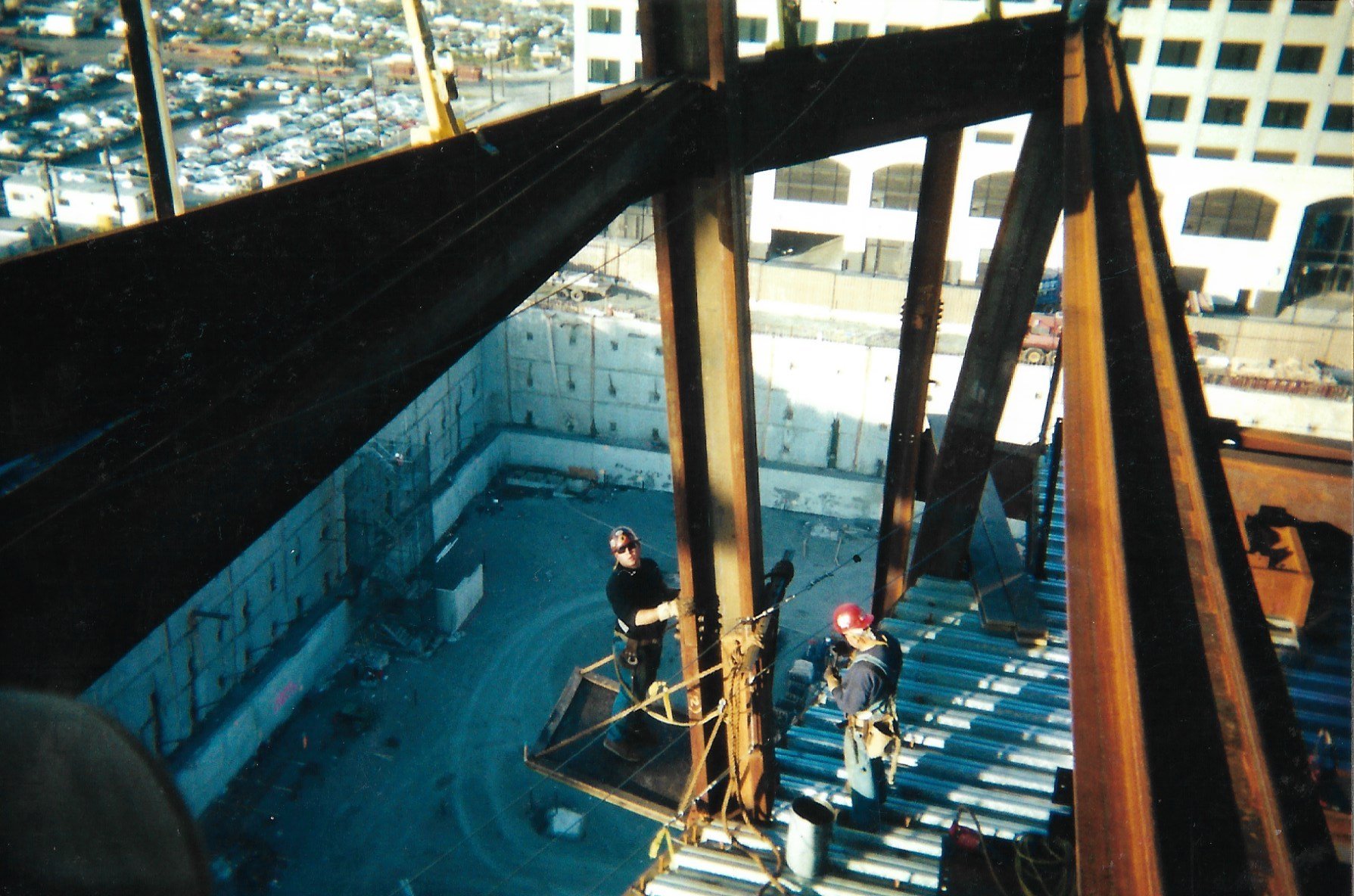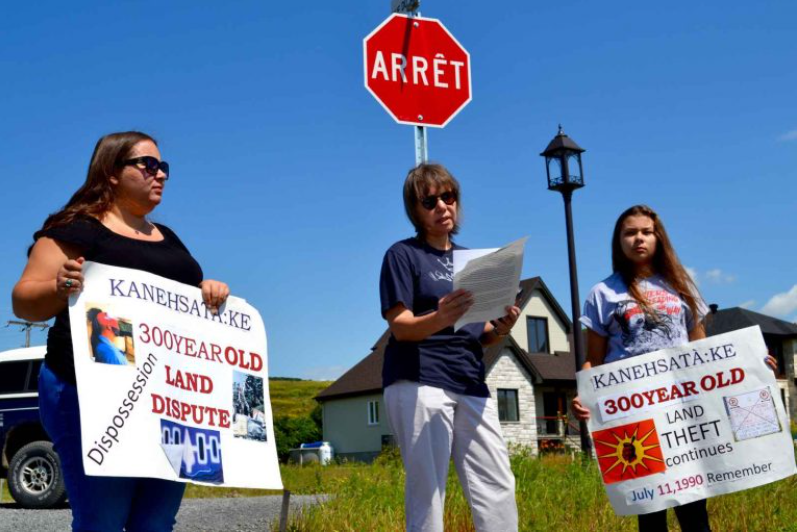STORIES / Okara’shòn:’a

Ohsia’á:ka
The Iroquois, confused as to why these people were extending their hands out to them, identified the French settlers as “Ohsia’á:ka,” or in English, “People of the palm.” For the few days after Jacques Cartier was there, the Iroquois kept mumbling ohsia’á:ka.

Safeguarding our heritage
I believe it's crucial for us to come together and engage in meaningful dialogue. Upholding the principles of the Two Row Wampum is very important: it's about honouring our shared culture and understanding.

Upholding traditions
Families would prepare lunches to bring to the grounds. Everyone looked forward to the picnic; it was special. It was a good feeling to see everyone gathered. Eventually, it became one of our traditions.

Big problem in Manhattan
My son and I had a talk on the way home that day about the sand running out of your hourglass. That event really drove home that you should never take life for granted because you just never know what can happen.

Forcibly removed
The people of Kanehsatà:ke were brutalized by the Seminary of St. Sulpice. The sulpicians were a society of priests from France, rich blue bloods filled with evil and greed. They were so rich that they could hire their own security forces to go in to violate and harass our people. Their goal was to get our people to leave our land.

The baddest boy
Once when I was younger I was playing hockey every day after school and asked my father, “Baba, can you buy me new skates?” He said, “Just keep on doing what you’re doing, going to get the milk on the farm, going to get the water, and maybe one day you’ll get it.”

Sound like my ancestors
After fourth grade they made a new school called Salmon River school. All of a sudden we’re going to school there now. We didn’t know that white kids were going to be there, we never went to school with white kids before.

Tioweró:ton
In the fall, we would go up to hunt. At night, the hunters would come down and tell us they got a moose, and the men would head up to help. It was a lot of work. We would cut the moose into pieces so that each man can carry a piece of the moose out of the bush. I was always excited to go because those who helped would get moose meat and have a party or celebration after we were done.

Life on the farm
We grew food that would be used for our survival. In the mornings we would go out and clean the barn, get eggs and those types of things, then head back to the house for breakfast. We were not rich but we were never hungry. In our crawl space, we had everything we needed like potatoes, carrots, and turnips.

Another mouth
As soon as those kids made it clear of the car, she put it in reverse and we got out of there. A few minutes later, she parked on the side of the road and she cried and cried. I just didn’t know what was happening.

Don't tell Brisebois
When I signed up for my courses, the woman from Sir George Williams College took out this ledger and said, “You’re one of the first to sign up from Indian Affairs. Here’s a voucher. Go get all of the books you need and give me the voucher when you’re done.” So, I did that. She must’ve sent the bill to Ottawa and they gave it to Brisebois.

Those are our orders
One night, we tried to get in after work and there were big crowds of like 200 people at all the checkpoints. We didn’t even try coming in, so we went back to Valleyfield and found a parking lot to stay in. Maybe two or three in the morning, we heard knocking on the window and we were surrounded by the SQ.

Always something
There was another time when it was a hot day, and our bus was taking us down St. Germain Road to the back of the monastery where we were supposed to be meeting government officials for another day of negotiations. When we arrived, the SQ was there waiting for us.

Ice water in our veins
Our big negotiation was that we wanted food and medicine let in passed the barricades, as well as international observers. When we talked to news reporters about these demands and concerns, they took it as us saying we just wanted all of the land back. They totally misconstrued everything.

Pivotal moment in Indigenous history
In 1990, the people thought we’d just get arrested; we didn’t expect to be shot at. We didn’t know that the SWAT team would be the ones to do the politician’s dirty work or that they would open fire upon us.

Restore the friendship
When they had the crisis in Kanesatà:ke back in 1990, a lot of people had bad feelings towards us. So, we had powwows to restore the friendship. We said, “Come and find out for yourself.” And they did find out. They never dealt with people so friendly.

Echoes of a proud nation
We decided we would choose the second weekend in July to commemorate what had happened that weekend in 1990. We also chose to host the powwow in the same area that the army had tried to invade in Kahnawà:ke, honouring the resilience of our community.

Fishing trip
My husband would go fishing all the time. I went with him once and told him, “Don’t ever ask me to go with you again.” Because it didn’t work out when we went, we got stuck.

Those guns won’t stop me
In 1990, we didn’t have any supplies in Kahnawà:ke because of the blockades. My husband Jimmy had a boat and my sister, Melissa, wanted to go shopping so Jimmy said, “Well okay Mel, get in my boat and I’ll take you.” She got on at Johnson’s Beach, and when they were halfway to the store, they had to land where the old movie theatre was in Dorval.

Could've died
When I was a kid, I remember seeing the older women, the grandmothers, swimming in the river. They were very modest and they wore handmade black dresses, even for swimming. I think they would jump into the river behind the church and float way out in the middle of the river. We could hear them laughing and laughing, floating down with their dresses that would make an air bubble around them.
